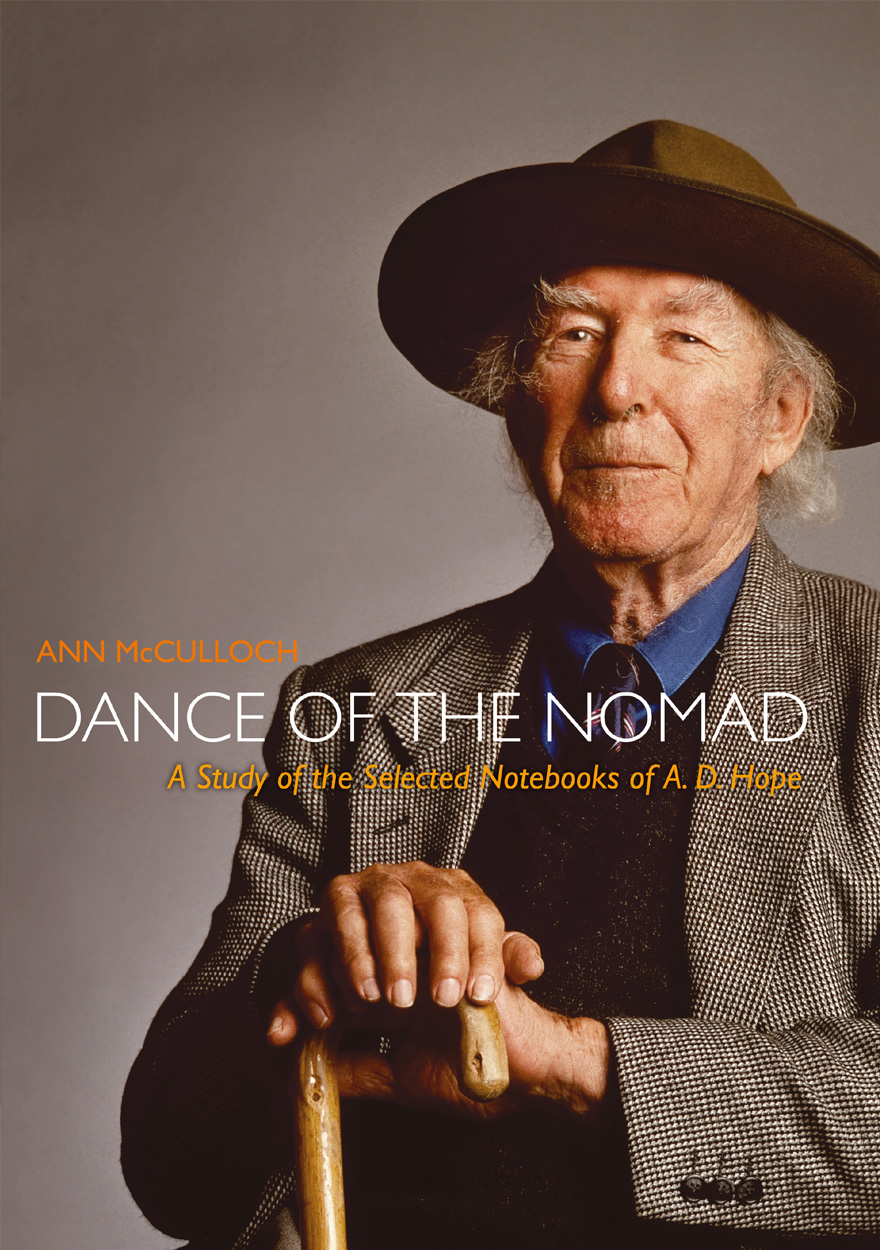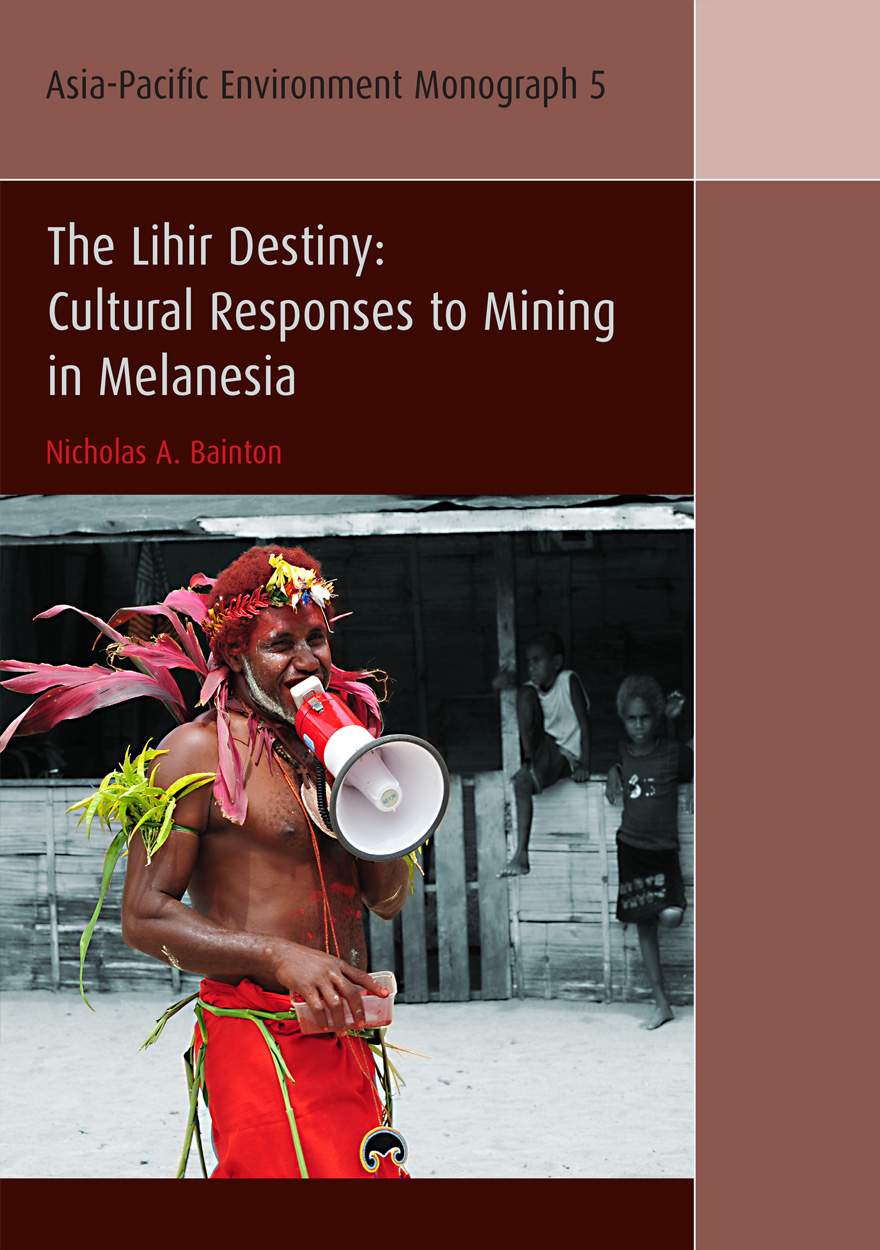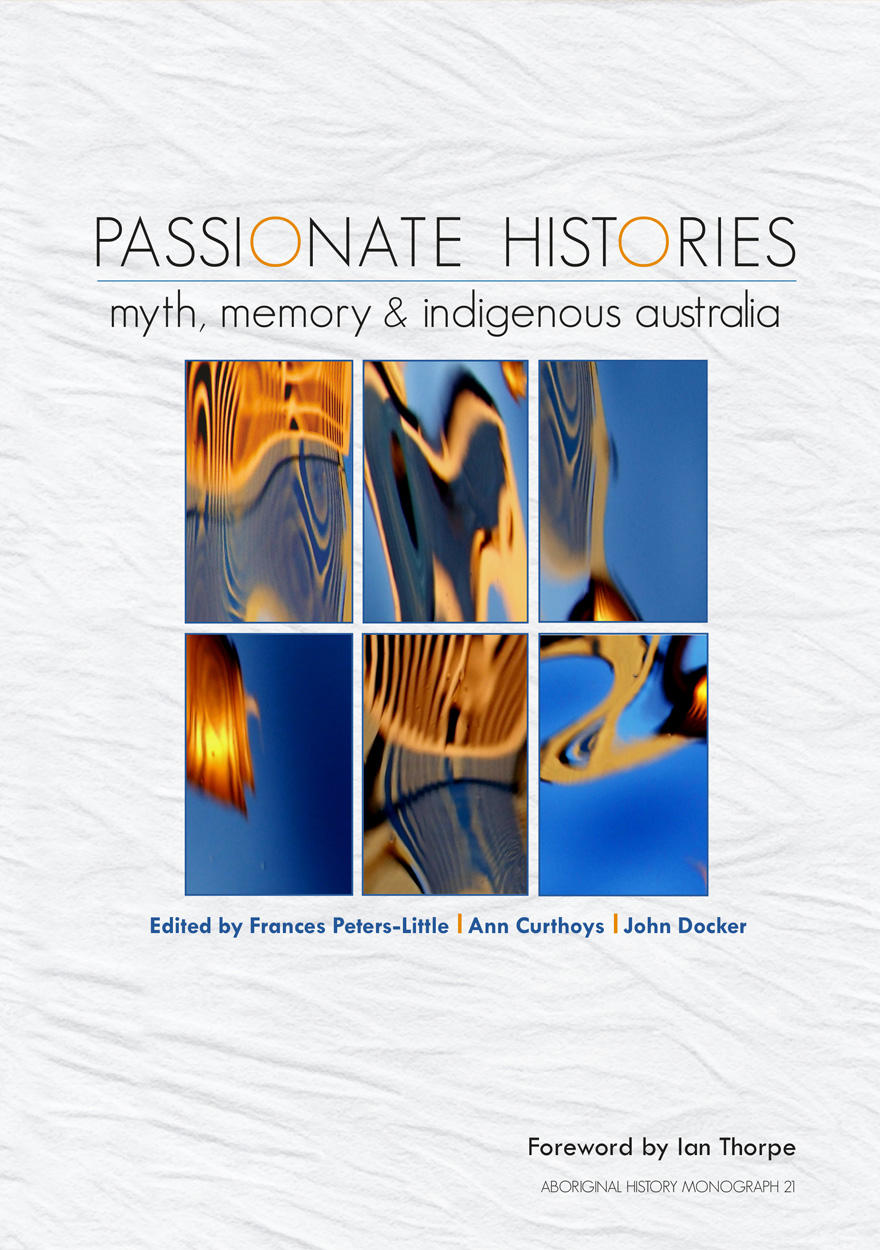Books
Browse or search ANU Press' range of books or find out more about the publications' authors and co-publishers. Download the book for free or buy a print-on-demand copy.
Displaying results 551 to 560 of 748.

Dance of the Nomad »
A Study of the Selected Notebooks of A.D.Hope
Authored by: Ann McCulloch
Publication date: November 2010
The notebooks of A. D. Hope are a portrait of the contradictory essence of the poet’s intellect and character. Shot through with threads of self-awareness and revelation, Hope imbued his notebooks with irony and humour, forming them as a celebration of the joy and terror of human existence. Stripped of intimate revelation, the entries give witness to Hope’s view that art is a superior force in the creation of new being and values, and a guide for the conduct of our lives.
Seeking to find pathways through the maze of an intellectual life, this is a profound and timely contribution to Australia’s literary scholarship. Ann McCulloch’s analysis of this thematic selection of Hope’s notebooks reveals him to be relentless in his experimentation with ideas. Revealing the originality of his thinking and the astonishing range of his reading and interests, this edition is a testament to the intellect of one of Australia’s towering literary figures.

In the Eye of the Storm »
Jai Ram Reddy and the Politics of Postcolonial Fiji
Authored by: Brij V. Lal
Publication date: November 2010
To read this evocative book is to be thrust into a Fiji that has, for the moment, been snuffed out by military might: a Fiji of political parties, parliamentary politics, elections, manifestoes, campaigns, democractic defence of interests, party manoeuvres, and constitutional protection of rights and freedoms. It is a comprehensive and eloquent re-telling of the story of Fiji politics from independence in 1970 to 1999 through the perspective of Fiji’s greatest living statesman, Jai Ram Reddy, by one of the world’s most distinguished scholars of its history and politics.

Altered Ecologies »
Fire, climate and human influence on terrestrial landscapes
Edited by: S. Haberle, J. Stevenson, M. Prebble
Publication date: November 2010
Like a star chart this volume orientates the reader to the key issues and debates in Pacific and Australasian biogeography, palaeoecology and human ecology. A feature of this collection is the diversity of approaches ranging from interpretation of the biogeographic significance of plant and animal distributional patterns, pollen analysis from peats and lake sediments to discern Quaternary climate change, explanation of the patterns of faunal extinction events, the interplay of fire on landscape evolution, and models of the environmental consequences of human settlement patterns. The diversity of approaches, geographic scope and academic rigor are a fitting tribute to the enormous contributions of Geoff Hope. As made apparent in this volume, Hope pioneered multidisciplinary understanding of the history and impacts of human cultures in the Australia- Pacific region, arguably the globe’s premier model systems for understanding the consequences of human colonization on ecological systems. The distinguished scholars who have contributed to this volume also demonstrate Hope’s enduring contribution as an inspirational research leader, collaborator and mentor. Terra Australis leave no doubt that history matters, not only for land management, but more importantly, in alerting settler and indigenous societies alike to their past ecological impacts and future environmental trajectories.

Facing Asia »
A History of the Colombo Plan
Authored by: Daniel Oakman
Publication date: October 2010
‘No nation can escape its geography’, warned Percy Spender, Australia’s Minister for External Affairs, in 1950. With the immediate turmoil of World War II over, communism and decolonisation had ended any possibility that Asia could continue to be ignored by Australia. In the early 1950s, Australia embarked on its most ambitious attempt to engage with Asia: the Colombo Plan. This book examines the public and private agendas behind Australia’s foreign aid diplomacy and reveals the strategic, political and cultural aims that drove the Colombo Plan. It examines the legacy of WWII, how foreign aid was seen as crucial to achieving regional security, how the plan was sold to Australian and Asian audiences, and the changing nature of Australia’s relationship with Britain and the United States. Above all this is the question of how Australia sought to project itself into the region, and how Asia was introduced into the Australian consciousness. In answering these questions, this book tells the story of how an insular society, deeply scarred by the turbulence of war, chose to face its regional future.

The Lihir Destiny »
Cultural Responses to Mining in Melanesia
Authored by: Nicholas A. Bainton
Publication date: October 2010
The people of the Lihir Islands in Papua New Guinea have long held visions of a prosperous new future, often referred to by local leaders as the ‘Lihir Destiny’. When large-scale gold mining activities commenced on the main island of Lihir in 1995, many hoped that this new world had finally arrived. The Lihir Destiny provides a nuanced account of the social structural and cultural transformations engendered by large-scale resource extraction. Tracing the history of Lihirian engagement with outside forces, from the colonial period through to recent mining activities, this book brings new light to bear on the bigger question of what ‘development’ means in contemporary Melanesia. The Lihir Destiny explores how Lihirian leaders devised future plans for a cultural revolution based upon the maximisation of mining activities and the influential philosophies of the Personal Viability movement. However, reaching the ‘Lihir Destiny’ is no simple affair, and many Lihirians find themselves negotiating divergent formulations of culture, sociality and economic engagement. The Lihir Destiny will appeal to readers interested in the social impacts of large-scale resource development, the processes of cultural continuity and change and the ways in which modernity is configured in local terms.

The Australian National University School of Art: A history of the first 65 years »
Authored by: Michael Agostino
Publication date: October 2010
The ANU School of Art has built an international reputation as a leader in visual arts, attracting staff and students from around Australia and the world. it has an active exhibition program; regular visits from distinguished national and international artists; overseas student exchange; open art access classes and co-operative arrangements with many other areas of ANU research and teaching. This volume presents the history of the ANU School of Art, from its humble beginnings as part of the Canberra Technical College in Kingston, to its evolution to stand on the world stage as part of one of Australia's top ranked universities playing an important role in the teaching of research of Australian visual arts, crafts and design.
Hard copies of this book are available through the ANU School of Art.
Download for free
Not available for purchase

Public Policy »
Why ethics matters
Publication date: October 2010
Ethics is a vigorously contested field. There are many competing moral frameworks, and different views about how normative considerations should inform the art and craft of governmental policy making. What is not in dispute, however, is that ethics matters. The ethical framework adopted by policy analysts and decision makers not only shapes how policy problems are defined, framed and analysed, but also influences which ethical principles and values are taken into account and their weighting. As a result, ethics can have a profound impact, both on the character of the policy process and the choices made by decision makers.
Public Policy – Why Ethics Matters brings together original contributions from leading scholars and practitioners with expertise in various academic disciplines, including economics, philosophy, physics, political science, public policy and theology. The volume addresses three main issues: fist, the ethical considerations that should inform the conduct of public officials and the task of policy analysis; second, the ethics of climate change; and third, ethics and economic policy. While the contributors have varying views on these important issues, they share a common conviction that the ethical dimensions of public policy need to be better understood and given proper attention in the policy-making process.

Passionate Histories »
Myth, memory and Indigenous Australia
Publication date: September 2010
This book examines the emotional engagements of both Indigenous and Non-Indigenous people with Indigenous history. The contributors are a mix of Indigenous and Non-Indigenous scholars, who in different ways examine how the past lives on in the present, as myth, memory, and history. Each chapter throws fresh light on an aspect of history-making by or about Indigenous people, such as the extent of massacres on the frontier, the myth of Aboriginal male idleness, the controversy over Flynn of the Inland, the meaning of the Referendum of 1967, and the policy and practice of Indigenous child removal.
For more information on Aboriginal History Inc. please visit aboriginalhistory.org.au.

Reconciliation and Architectures of Commitment »
Sequencing peace in Bougainville
Authored by: John Braithwaite, Hilary Charlesworth, Peter Reddy, Leah Dunn
Publication date: September 2010
Following a bloody civil war, peace consolidated slowly and sequentially in Bougainville. That sequence was of both a top-down architecture of credible commitment in a formal peace process and layer upon layer of bottom-up reconciliation. Reconciliation was based on indigenous traditions of peacemaking. It also drew on Christian traditions of reconciliation, on training in restorative justice principles and on innovation in womens’ peacebuilding. Peacekeepers opened safe spaces for reconciliation, but it was locals who shaped and owned the peace. There is much to learn from this distinctively indigenous peace architecture. It is a far cry from the norms of a ‘liberal peace’ or a ‘realist peace’. The authors describe it as a hybrid ‘restorative peace’ in which ‘mothers of the land’ and then male combatants linked arms in creative ways. A danger to Bougainville’s peace is weakness of international commitment to honour the result of a forthcoming independence referendum that is one central plank of the peace deal.

Sex Discrimination in Uncertain Times »
Edited by: Margaret Thornton
Publication date: September 2010
This collection of essays arose from a conference held to mark the silver anniversary of the Australian Sex Discrimination Act (1984). The collection has two aims: first; to honour the contributions of both the spirited individuals who valiantly fought for the enactment of the legislation against the odds, and those who championed the new law once it was passed; secondly, to present a stock-take of the Act within the changed socio-political environment of the 21st century.
The contributors present clear-eyed appraisals of the legislation, in addition to considering new forms of legal regulation, such as Equality Act, and the significance of a Human Rights Act. The introduction of a proactive model, which would impose positive duties on organisations, is explored as an alternative to the existing individual complaint-based model of legislation. The contributors also pay attention to the international human rights framework, particularly the Convention on the Elimination of all Forms of Discrimination against Women and the UN Declaration on the Rights of Indigenous People. The essays are illuminated by recourse to a rich vein of historical and contemporary literature. Regard is also paid to the comparative experience of other jurisdictions, particularly the UK and Canada.



